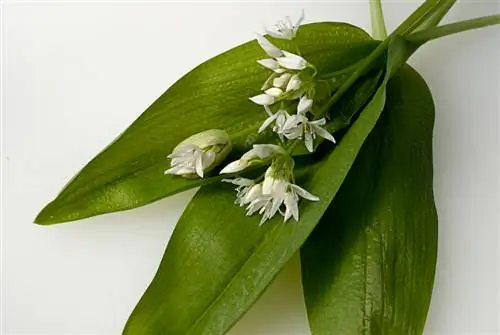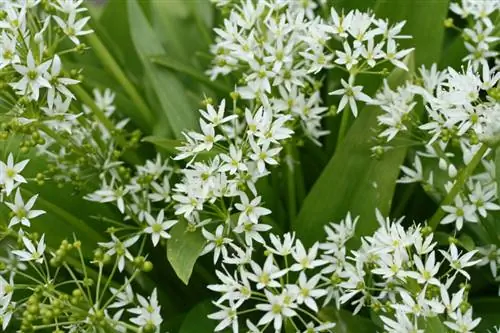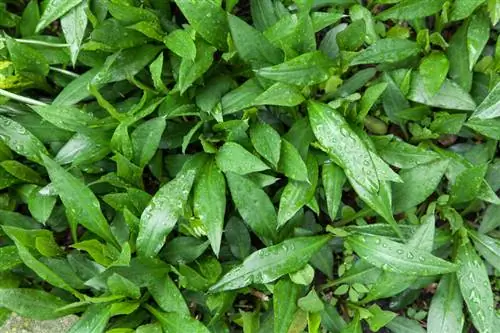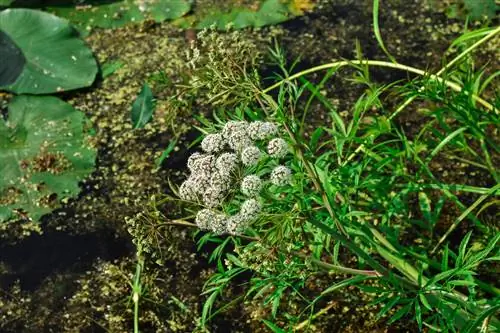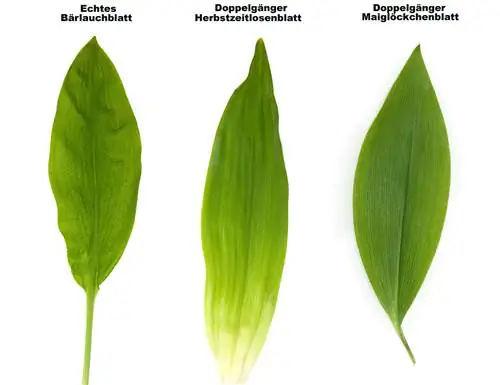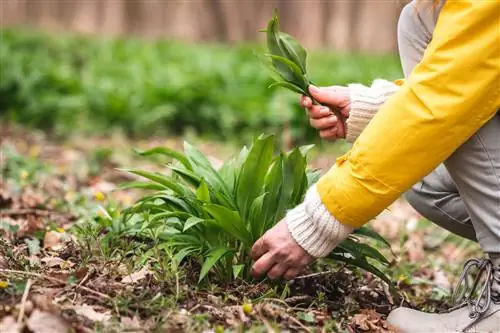- Author admin leonars@hobbygardeners.com.
- Public 2023-12-16 16:46.
- Last modified 2025-01-23 11:20.
Wild garlic is a popular spice plant in spring dishes in many regions. However, when collecting in the forest there is a risk of confusion with highly poisonous plants that should not be underestimated.
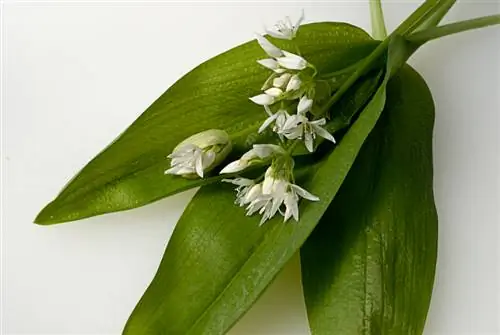
Is wild garlic poisonous or can it be confused with poisonous plants?
Wild garlic itself is not poisonous, but when collected in the forest there is a risk of confusion with poisonous plants such as lily of the valley, Aaron's rod and autumn crocus. When identifying wild garlic, a garlic-like smell after grinding the leaves helps.
The poisonous doubles of wild garlic
The risk of confusing wild garlic with other plants is so great because several plants with similarly shaped leaves often share the same location in the forest with wild garlic. The following plants in particular are highly poisonous when consumed:
- lily of the valley
- the poisonous Rod of Aaron
- the autumn crocuses
Since even small quantities of the leaves of these species can be highly toxic or even fatal, collecting wild garlic in the forest should always be done with the greatest concentration and never quickly and over a large area. Planting wild garlic in a shady location in your own garden offers a little more safety, as mixing with other plants can be prevented.
Identifying wild garlic correctly
Even if the leaves of the wild garlic differ slightly from those of its counterparts when you look closely, you should still always carry out a smell test. To do this, rub a small part of a wild garlic leaf between your fingers until you smell a garlic-like smell. This smell only occurs on the leaves of wild garlic and not on its counterparts. However, the hands must be waxed for repeated use of this test, otherwise the odor clinging to the hands could have disastrous consequences.
Tips & Tricks
During the flowering period, wild garlic is easier to find in the forest, as the sometimes spherical flowers of up to twenty white individual flowers on long stems protrude from the ground and spread a characteristic smell.

